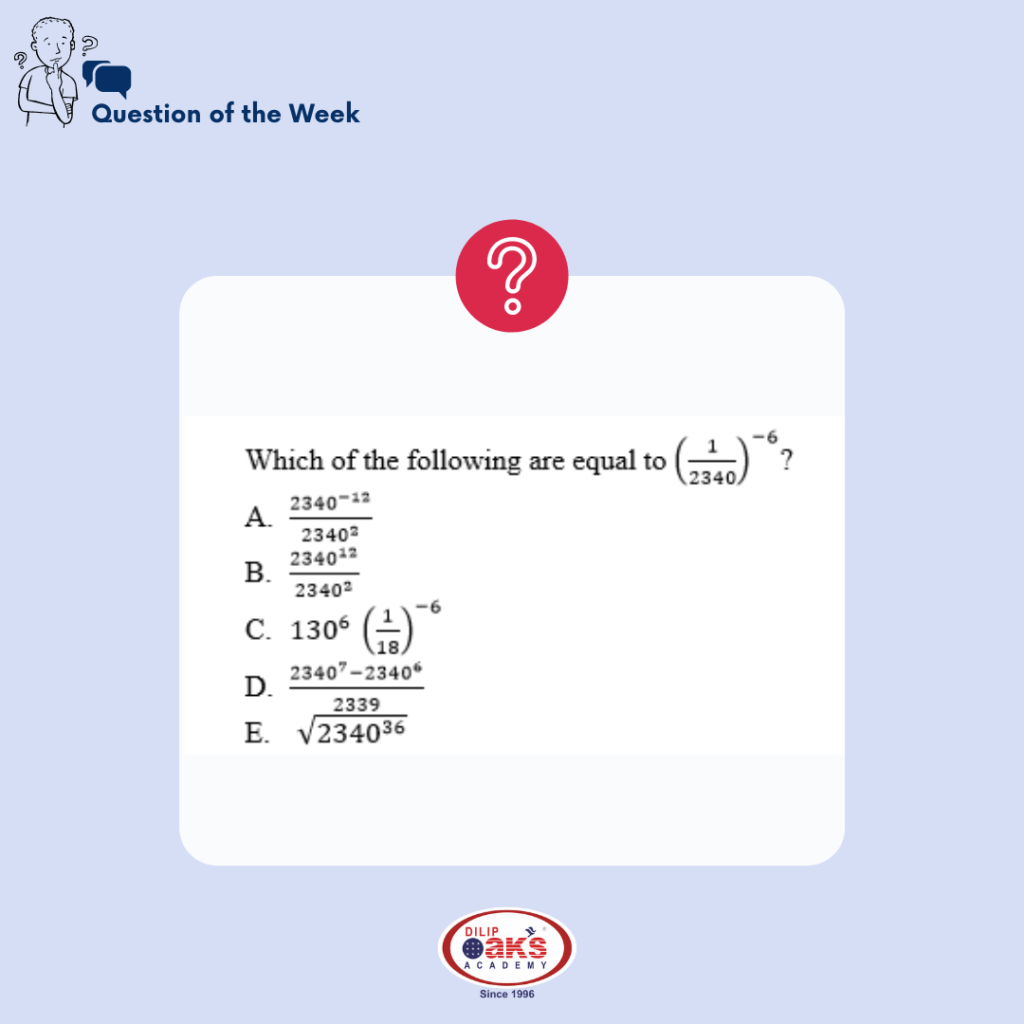When preparing for an exam, it is important for us to understand the format, structure and syllabus of that exam. So, in this blog, we will try to understand every aspect of the GRE Quantitative Reasoning Section, which will help us develop a very focused approach to ace this section. It will also answer the frequently asked questions (FAQs) that students ask while preparing for this section. So, let’s begin!
Assessing the Content of the GRE Quantitative Reasoning Section
The GRE Quantitative Reasoning section of the GRE mainly evaluates:
- Your basic understanding of the mathematical concepts
- Your ability to interpret and analyze quantitative information
- Your application skills in solving the questions within the given time limit
Understanding the scope of the syllabus for the Quantitative Reasoning Section
- The GRE broadly tests you on four main topics: Arithmetic, Algebra, Geometry and Data Analysis. The Math Review (PDF) file provides detailed information about the scope of the syllabus.
- To summarize, it tests you on all your high school math concepts.
- Good news: No trigonometry, no calculus!
Exploring the Structure of the Quantitative Reasoning Section
- The Test comprises two Quantitative Reasoning sections with 27 questions to be completed in 47 minutes.
- The section-wise break-up is as follows:
- Section I: 12 questions to be completed in 21 minutes
- Section II: 15 questions to be completed in 26 minutes
- The following question types are asked:
- Multiple Choice (Single Correct):
- Multiple Choice (One or more correct)
- Numeric Entry Questions
- Quantitative Comparison Questions
- An on-screen calculator is available for the Quantitative Reasoning Section. (It is not a scientific calculator.)
Identifying Resources for Preparation
The following ETS GRE Resources would be the most authentic prep material as they include practice questions straight from the source.
A myriad of publications is available in the market, and a vast resource of material is on the net. But while choosing material, it would be wise to choose GRE-oriented material as it would cater to the format of the exam. At Dilip Oak’s Academy, our books and online practice material have been designed keeping the Test in mind, thus ensuring your focused preparation.
Achieving Success in the Quantitative Reasoning Section: Top Strategies
To get a good score in the Quantitative section of the GRE, ensure that your preparation involves the following steps:
Concept building:
- Get a good grasp of the fundamental concepts
- Memorize your formulae and computational tables to quickly and accurately solve questions.
- Get familiar with the Question Types.
Practice, practice, practice:
- Strengthen your concepts by solving a large number of practice questions specifically designed for the GRE.
- Practice using tricks, shortcuts and time-saving strategies
- Focus on increasing your accuracy and time management.
Testing:
- Testing yourself at regular intervals will familiarize you with the format of the exam.
- Review/feedback will help you understand your strengths and weaknesses, which can be worked upon.
- Taking at least two tests under simulated testing conditions would be a good approach as it would make you comfortable with the testing environment with time restrictions.
Now that we have covered the basics, let’s discuss some other questions you may have.
What if I have ‘Math Phobia’?
Many students are always scared of math and thus experience ‘math phobia’, which probably has no cure. Maybe you are not good at math naturally, but don’t give up. Remember, the GRE covers only the basic mathematical concepts studied at your school level, so your math skills are not being tested in this exam. Your application skills are put to the test, along with your logical and analytical thinking. Focus on your strong areas, not the troubled areas that haunt you. Lingering on these may only increase your anxiety and thus affect your preparation and, consequently, your performance.
What should be my approach if I have a strong Math background?
If that is the case, you may find the questions on this exam very simple. But beware! You may be caught off guard! Instead of becoming complacent, a good strategy would be to brush up on your concepts and use the simplicity of this exam to your advantage. Overdependence on your mathematical abilities may affect your score adversely, narrowing your chances of securing admission to a good university.
What Next?
- Now that you have understood the focus of the exam and its format, start preparing according to the three steps mentioned above.
- Ensure that you have a very good understanding of the fundamental concepts.
- Completing 12 and 15 questions in 21 and 26 minutes respectively is one of the main challenges you will face while answering the Math section. Remember, your speed and accuracy should go hand in hand. You cannot afford to compromise one at the cost of the other.
To summarize, a dedicated and focused approach will surely enhance your test-taking skills, which will guarantee a good score. It’s not necessary to study hard; study smart. Wishing you all the BEST!!!
At Dilip Oak’s Academy, we understand the significance of this journey. Thus, we offer comprehensive GRE coaching in Pune, both online and classroom, to support you in this crucial aspect of your academic journey. Further, our admission counseling services can guide you through the entire process from Shortlisting Universities to Visa Counseling. With our expertise, we have successfully sent 32,000 students to various prestigious American universities like MIT, Stanford, Cornell, and Carnegie Mellon. To enroll in our comprehensive services, book a free consultation or call us at 91-020-67444222.
We offer GRE, TOEFL, and IELTS coaching, GRE Self Prep and guide students with university selection, application essays, and visa counseling under our Admission Counseling Services for USA, Germany and Canada.






